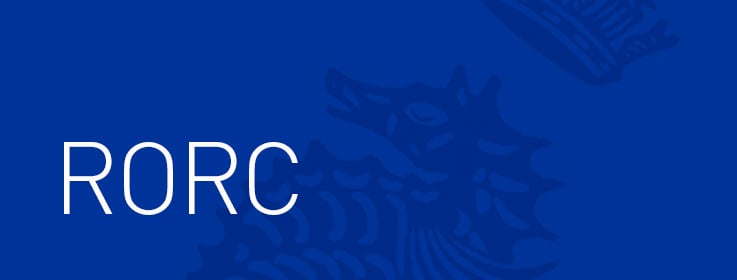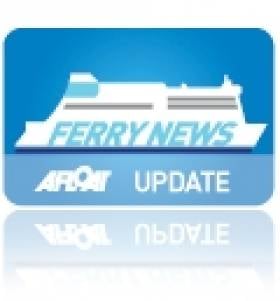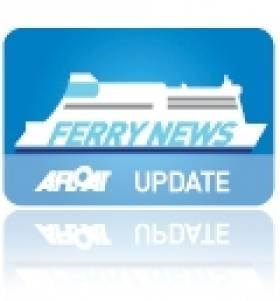Displaying items by tag: CLF
Celtic Horizon Officially Enters Service
She replaces the Norman Voyager which too was built by Visentini. The 186m ro-pax vessel last week arrived from the Mediterranean (to read more click HERE) and will be chartered to CLF for a five-year term contract. Overall she has a larger passenger deck compared to her predecessor, with a restaurant, two bars, pull-man lounges, a cinema, children's play-area, game-zone and kiosk-shop.
In addition to her 130 cabins she has five vehicle decks for 200 cars and a total 2,500 lane freight metres equating to around 110-trucks. An unusual feature is an escalator that whisks passengers from the car-decks up to the passenger deck.
Prior to the event, Celtic Horizon had arrived into the Wexford port. She had completed her maiden 'Irish' round-trip commercial voyage over the weekend from Cherbourg during stormy seas under the command of Captain Richard Collins.
Last year CLF handled 60,000 passengers and 50,000 vehicles between tourist vehicles and freight business. This year they are expecting an increase of passenger traffic of around 30%. The company are the only ferry operator running year-round sailings on the Irish –French routes.
CLF took over the Rosslare-Cherbourg route from P&O in 2005. With the Celtic Horizon they will continue providing three-round trips per week on the route which transports passengers, tourist cars, camper-vans, freight trucks including livestock and the importation of French manufactured new trade-cars.
Celtic Link Ferries Look Forward to New Ferry
Celtic Link Ferries are to introduce a replacement ferry on their Rosslare-Cherbourg port route later this year, writes Jehan Ashmore.
The current ship serving the route to France is a modern 26,500 tonnes ro-pax ferry Norman Voyager which entered service for Celtic Link Ferries less than two years ago. The ferry (photo) has a service speed of 22.9 knots and takes 18-hours to travel on the direct route between Ireland and France.
A spokesperson for the company claimed that bookings for the thrice-weekly round-trip sailings for this season are faster in uptake compared to this time last year. The Norman Voyager can take 800-passengers and 200 vehicles and facilities include 110 cabins, bar, restaurant, lounges, cinema and a shop.
The charter of Norman Voyager ceases in October and this will see the introduction of the acquired vessel on the year-round operated service. A competition is to be run and open to the public so to establish a new name for the vessel.
The new vessel the Cartour Beta (photo) is slightly larger at 27,552 tonnes and will be able to offer facilities with a wider choice of bars, restaurents and play areas. She has a speed of 25 knots, an increased passenger capacity of nearly 1,000 passengers, 800 cars or 150 freight vehicles.
Cartour Beta in the meantime operates on an Italian ferry service run by Caronte and Tourist (C&T) on two routes between Salerno to Messina and Termini Imerese in Sicily.
Externally in appearance the vessels are very similar except that the Cartour Beta has a continues superstructure that extends to surround the funnel whereas on the Norman Voyager this area is occupied by an open upper vehicle deck.
In fact the replacement vessel is more alike to Stena Line Irish Sea Ferries Belfast-Birkenhead route-ship sisters Lagan Viking and Mersey Viking. Like the Norman Voyager all these vessels are derived from a popular series built by Visentini, an Italian shipyard in Donada near Venice.
Since Celtic Link Ferries took over the route from P&O Irish Sea in 2005, the company has kept to a keenly priced policy with competition from other operators on the continental routes that also run out of Rosslare Harbour and from Cork.































































